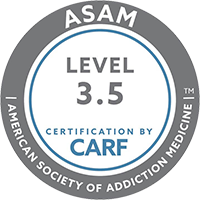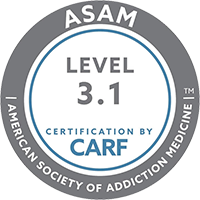
When Addiction Recovery Care (ARC) began accepting clients at its first treatment center, Karen’s Place, back in 2010, most women walking through the doors were struggling with opioids.
According to the CDC, that year marked the beginning of the opioid epidemic’s second wave, marked by rapid increases in overdose deaths involving heroin.
More than a decade later, the opioid crisis continues to evolve – and today includes substance use disorders involving alcohol, amphetamines, cocaine and fentanyl, a potent synthetic opioid leading to record-high overdose fatalities in Kentucky and across the country.
Research released earlier this year indicated that “we may be entering yet another new era of the opioid epidemic,” where individuals using opioids and/or heroin are also turning to stimulants like methamphetamine.
Among the clients who have come to ARC so far in 2022, roughly one-third primarily use amphetamines – a significant increase from several years ago. In 2015, less than 5 percent of ARC’s admissions were individuals primarily using amphetamines.
“The addiction crisis we face today is different from the addiction crisis of 2010, 2015 and even 2019, before the pandemic. It’s never been more important for providers to tailor treatment plans to clients’ individual needs,” said addiction psychiatrist Dr. Sarah Johnson, who serves as ARC’s medical director of behavioral health.
Admissions for alcohol use disorder have also risen in recent years. A 2022 study found that AUD-related deaths increased by almost 25 percent in the first year of the pandemic and rose again by more than 20 percent in 2021.
Medical staff at ARC say they’ve also seen an uptick in clients using multiple substances.
“We must take a comprehensive, 360-degree approach to addiction treatment that doesn’t focus on only one substance or one solution,” added Dr. Sarah Johnson.
Overdose Awareness Day is coming up on August 31 – and with overdose fatalities in Kentucky continuing to rise, ARC is encouraging individuals to seek help, while urging community partners, public officials and other stakeholders to invest in strategies that not only address opioid use disorder but also help individuals struggling with substances like meth and alcohol.
“ARC has been serving Kentuckians for over a decade. We know what works, but we’re also adapting and growing to meet the changing needs of clients today,” said Pat Fogarty, ARC’s senior vice president of operations. “Whether you’re struggling with one substance or multiple, treatment can work for you, and recovery is possible.”





